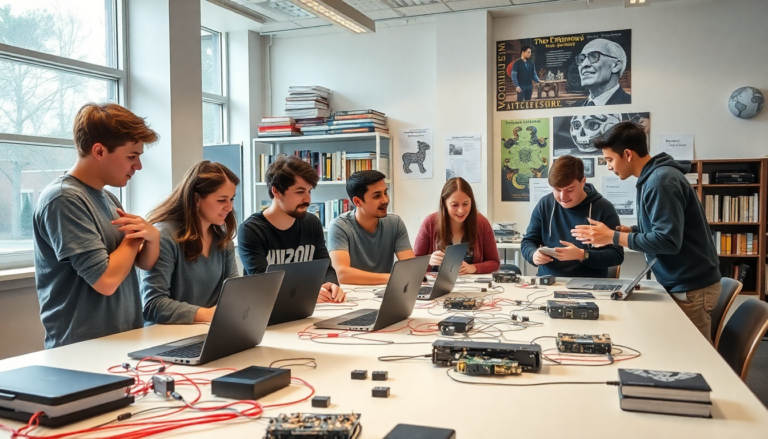Argomenti trattati
In today’s fast-paced world of technology, educational institutions are crucial for nurturing the innovators of tomorrow. At Mizzou Engineering, one standout initiative is the Research Experience for Undergraduates (REU), which is making waves in the realms of consumer networking technology and artificial intelligence (AI). This year marks the 18th year of this program, making it one of the longest-running REU sites in the United States and a magnet for talent from across the country.
A Commitment to Collaborative Learning
The primary goal of the REU program is to foster problem-solving skills and innovative thinking among undergraduates. Prasad Calyam, a respected professor in the Department of Electrical Engineering and Computer Science (EECS), emphasizes the value of tackling meaningful research challenges through teamwork. This summer, the program accepted ten students from over 185 applicants, each eager to dive into pressing issues related to AI, mobile sensing, environmental recognition, software-defined networking, and virtual reality.
One of the program’s standout features is its strong focus on publication. Almost every project leads to a peer-reviewed publication or presentation, providing students with vital skills in science communication. Participants not only gain research experience but also build a portfolio that includes conference papers, posters, and workshops—essential tools for advancing their academic careers.
Real-World Challenges and Innovations
Among the students, Joelle Dizon, a computer science major from Lehigh University, focused on generating code for cybersecurity tools using large language models. She shared her excitement, saying, “The chance to tackle real technical challenges in a collaborative environment was a huge draw for me.” The program emphasizes essential skills, including effective communication through regular progress presentations and comprehensive final reports.
Another participant, Vincent Zheng from Stony Brook University, dedicated his summer to crafting AI models for drones to enhance their analytical capabilities. Using Meta’s PyTorch machine learning library, he ran simulations on the AERPAW wireless research platform. Zheng expressed his enthusiasm for the REU, noting how it perfectly aligns with his interests in systems and AI, particularly in addressing real-world challenges like UAV analytics and federated learning.
Students from various institutions, including Colgate University and the University of Maryland, collaborated on diverse projects involving wearable sensing technologies and secure AI systems for remote patient monitoring. With mentorship from faculty members such as Kannappan Palaniappan, Yi Shang, and Tanu Malik, these students received invaluable guidance throughout their research journeys.
Long-Term Impact and Future Prospects
The impact of the REU program extends well beyond the summer months. Calyam insists that this initiative is about more than just technology; it’s about equipping students with the skills, confidence, and curiosity to pursue graduate studies and meaningful careers in research and innovation. By encouraging a proactive approach to learning and exploration, Mizzou Engineering is shaping a generation of scholars poised to tackle the challenges of the future.
At Mizzou, the culture of curiosity and innovation is evident, creating an ideal environment for aspiring researchers. The REU program serves as a prime example of how hands-on learning experiences can empower students to make significant contributions to the field of technology and beyond.

